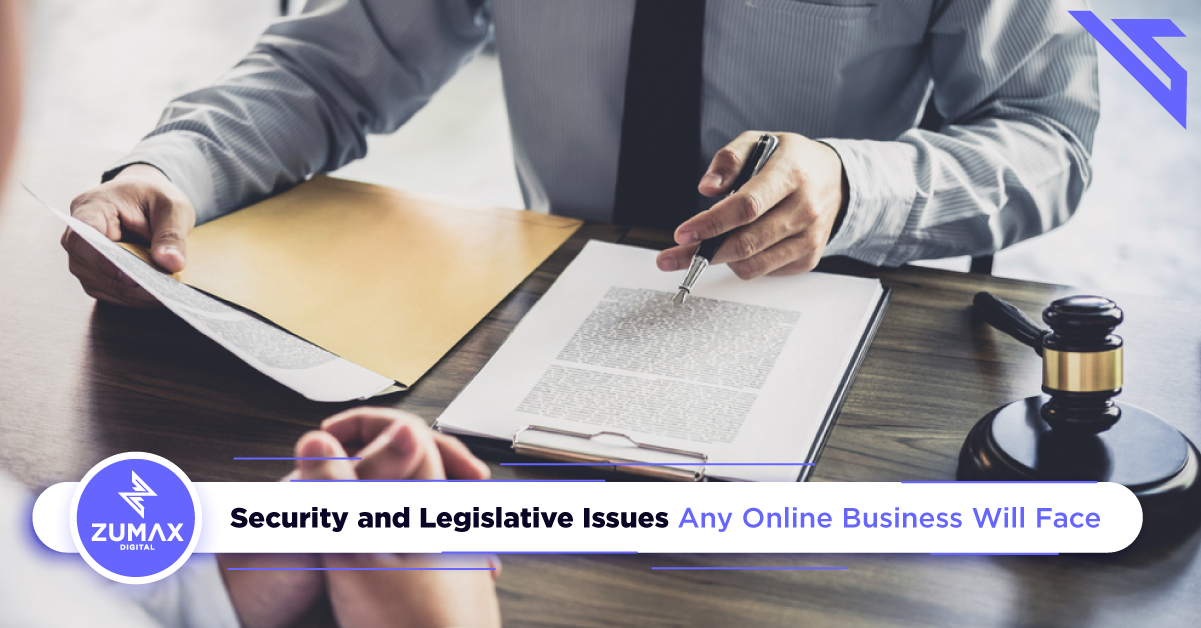Security Issues
The web offers a powerful platform that businesses can take advantage of to create a strong online presence. However, this also comes with some unique security threats that the organisation can face and must be aware of to prevent it from happening.
Malware (Malicious Code)
There are many types of malware, some of which are viruses, worms and ransomwares. A virus is a program that can replicate itself and spread to other files. A worm is a type of malware that can spread to other computers and ransomwares can prevent an individual from accessing the computer unless you pay a certain fee. All these malwares can inhibit a machine’s ability to perform properly and it can result in data loss or the need for maintenance. This would needlessly increase the cost and time of the business to recover the website. Malware can be spread by downloading attachments from emails and can also be spread by online advertisement chains. This type of security breach will most likely be caused by internal workers who are not careful and download certain attachments or files that have the malware. This security breach can be prevented by installing an antivirus program and keeping updated with the software or having a firewall.
Phishing
Phishing is a deceptive online attempt by a third party to obtain confidential information for financial gain. It heavily relies on social engineering to trick people into giving them their personal information and they are often disguised as a business or a trusted organizational body to create a false sense of security. They also use emails to trick customers into thinking that something went wrong with their purchase and asks them to bank in a sum of money into their bank account or personal information such as bank account numbers, contact information and credit card numbers. The organisation can prevent websites that disguise as their business by alerting the customers by email, filling a government complaint against a phishing site and reporting the site to google.
Hacking
In general, a hacker is someone who wants to gain unauthorised access to a computer system. A hacker does so for many reasons. A hacker gains access by finding weaknesses in the security procedures of the web sites and organisation. A cracker has criminal intent to break into the website to destroy vital data, deny legitimate users service, or cause problems for their targets. The act of disrupting, defacing and destroying websites is called cybervandalism. Hacktivism is a politically motivated hack that combines cybervandalism and data theft. Credit card theft is also a product of hacking. Hacking can be made more difficult by keeping up with the latest technologies and making sure that the organisation does not have any weak spots for hackers to gain access. Using encryption which is transforming plain text to cipher text that cannot be read by anyone that doesn’t have the key will reduce the chances of hackers hacking the organisation.
Denial of service (DoS) and Distributed Denial of Service (DDOS)
A DoS attack is when a hacker uses numerous useless pings or page requests from bots which are thousands of compromised client computers to flood the website and increase the traffic of the site until the website is shut down and the actual customers are not able to access the website. . A Distributed Denial of Service (DDoS) attack uses numerous computers to attack the network from numerous launch points. This will affect the system’s operations. These attacks will significantly damage the business as customers will not be able to purchase anything during that time period.
Legal Issues
The concerns of building an online presence does not only limit to security issues but also includes legal issues. These issues will have to be taken into consideration before creating any content or collecting any form of data from your customers. Understanding these issues will enable the organisation to avoid any costly legal actions against them.
Privacy
The method of collecting customer information must be done properly with either a privacy policy or an agreement to the terms and conditions set from the organisation. This is because the customers need to develop a trust in your organisation before they give you their personal information. This can be done by showing the customers that we protect the data given to us by having a Secure Sockets Layer (SSL). The SSL means that the connection between your website and the user’s browser is secure when data is transmitted. Ensure that any websites you use with your customers have SSL enabled.
Another potential security issue is the storage of customer data. A popular way for many online businesses and marketing companies to store data is to use cloud storage providers. To reassure your customers that you are keeping their data safe, always choose a reputable provider.
The use of encryption can also help the organisation protect the data as it can save the company’s information from being leaked out and fall into the hand of abusive practices. It is done by putting tight security over data such as applying passwords over databases or online security locks which are very difficult to crack by the online thieves.
Trademark
Registering a trademark gives you the exclusive right to use a specific word or words, name, design, or logo in connection with specific goods or services. It is valid for 10 years and is renewable if certain requirements are met. Therefore, to ensure that the logo of the company has not been copied and used in other organisations for other reasons.
Copyright
If you use original marketing language on your website or text in emails, you may want to copyright that text. Copyright relates to authorship of original works, including literary, dramatic, musical, artistic, architectural, and a broad range of other works. Copywriting prevents other people from using your tagline.
Like and follow Zumax Digital to keep updated and be informed. Feel free to consult us to unlock your business’s potential.





